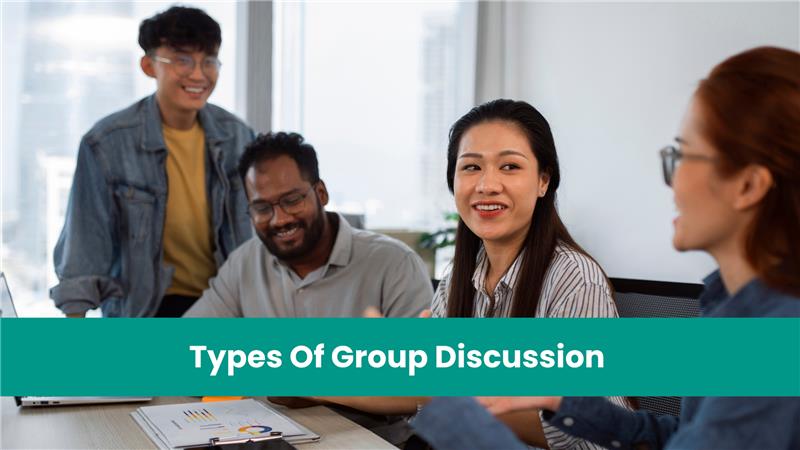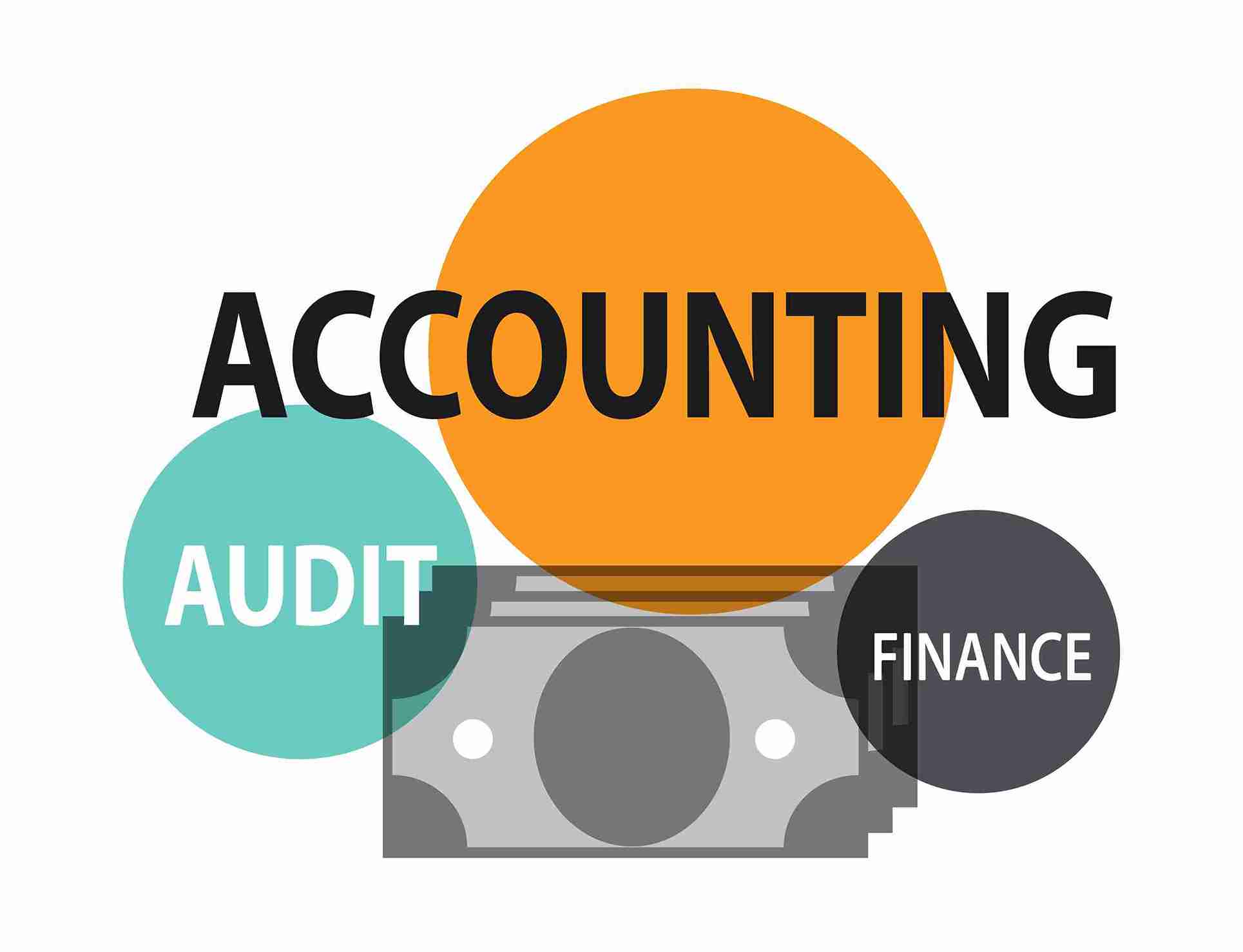Group Discussion (GD) is a common method used in interviews, academic entries and professional hiring. It helps to judge how a person thinks, speaks, works in a team and understands a subject. To do well, it’s important to know the types of group discussions and how each works.
Types Of Group Discussion
Group discussions are not similar for everyone. It can vary based on the purpose of selection like campus interviews, job interviews or corporate training. Each purpose has a different style of group discussions focused to test specific skills which includes critical thinking, creativity, teamwork and subject knowledge. Therefore, understanding the types of group discussions makes it easier to prepare, respond confidently and stand out.
1. Topic-Based Group Discussion
This is the most popular type of GD. Participants are given a topic and asked to speak on it. The goal is to share your opinion, support it with facts or examples and work with others to discuss the topic fully. These group discussion helps check your knowledge, how you express ideas and how you respect others’ views.
Topic-based Group Discussions are divided into:
A: Factual Topics
These are based on real-world events, general awareness or social issues. You need to be aware of current affairs and express opinions clearly.
| Factual GD Topic | Discussion Points |
| Is India ready for a cashless economy? | Discuss readiness of infrastructure, financial literacy and digital access |
| Impact of social media on youth | Cover behavioral changes, mental health effects and productivity concerns |
| Online education vs traditional education | Pros, cons, accessibility, quality and learning outcomes |
| Role of technology in the workplace | Automation, efficiency, employee adaptation and job shifts |
| Climate change is a global concern | Causes, effects, mitigation, global agreements and individual responsibility |
| The rise of electric vehicles | Environmental impact, adoption challenges and infrastructure |
| Women empowerment in rural India | Education, employment, cultural barriers and government schemes |
B: Abstract Topics
These topics does not have a clear meaning. They’re often one word or phrase. You can be creative and interpret them any way you like. This tests your thinking and imagination.
| Abstract GD Topic | Discussion Approach |
| Blue is better than red | Interpret via emotion, branding, personality or social associations |
| Silence speaks louder than words | Relate to communication, actions vs words and leadership styles |
| A world without rules | Discuss freedom, anarchy, pros and cons of structured systems |
| Freedom | Define personal, social, economic or political freedom |
| The thin line between success/failure | Talk about mindset, risk, perception and motivation |
| Black and white | Discuss binaries, decisions, moral clarity or cultural views |
C: Opinion-Based Or Controversial Topics
These topics have multiple sides, people may agree or disagree. They test your ability to present strong views without being rude.
| Opinion-Based GD | Focus Points |
| Should the voting age be 16? | Youth maturity, political awareness, pros and cons |
| Is censorship justified in entertainment? | Creative freedom vs social responsibility |
| Is AI a threat to jobs? | Job loss, skill shift, ethics and tech opportunities |
| Should plastic be banned? | Environmental hazards, economic dependency and alternatives |
| Reservation in education – fair or unfair? | Social justice, meritocracy and historical context |
| Is Work From Home productive? | Productivity, flexibility, team bonding and work culture |
| Should exams be removed in schools? | Learning methods, stress, assessments and alternatives |
D: Case-Based Topics
| Case-Based GD | Focus Points |
| City faces water shortage | Plan public awareness, resource management and infrastructure |
| College to introduce uniform | Pros and cons, student response and institutional image |
| Startup faces high attrition | Find causes, HR solutions and employee engagement |
| Team conflict during project delivery | Conflict resolution, leadership and communication strategy |
| Ad campaign for new energy drink | Branding, target market and media plan |
| Re – branding a failed product | Market research, customer insights and new value proposition |
2. Knowledge-Based Group Discussion
This type focuses on one subject and you should know the topic well. It’s often used in academic admissions or industry-specific hiring.
| Knowledge-Based Group Discussion | Focus Points |
| Blockchain technology and its applications | How blockchain works, its use in finance, logistics and security |
| Impacts of GST on small businesses | Cost compliance, benefit of unified tax and initial challenges |
| Future of data science in India | Growing fields, required skills, opportunities and education |
| Budget 2025: Analysis and highlights | Key takeaways, impact on sectors, pros and cons |
| Sustainable development goals (SDGs) | Global progress, India’s performance and areas needing attention |
| Cybersecurity: A growing concern | Recent attacks, personal data protection and best practices |
| Role of 5G in digital India | Speed, connectivity, innovation in sectors like healthcare & education |
3. Case Study Group Discussion (Caselets)
This is similar to case-based Group Discussions but more structured. You’ll be given a situation (like a business problem) and asked to discuss what should be done. This type is common in MBA or management interviews.
| Case Study Group | Points |
| Retail chain is losing customers | Analyze customer journey, service issues and competitor strategies |
| Startup wants to go global | Budget, marketing, target regions and partnerships |
| Improve employee retention | Culture improvement, benefits and career growth plans |
| Crisis management in airline industry | Steps for safety, PR communication and handling panic |
| Launching product in rural India | Target market study, language, pricing and distribution |
| Improve metro traffic | Public transport upgrades, digital payment and regulation |
| Post-pandemic recovery plan | Business continuity, customer trust and remote work shifts |
4. Behavioral Or Role Play Group Discussion
In this type, participants are given roles (like a manager, HR or client) and act out a real-life situation. It helps assess how you handle people, solve problems and work in teams.
| Role Play Group Discussion | Objective |
| Manager resolving teammate conflict | Use empathy, fairness and communication strategies |
| HR handling resignation | Retention effort, professionalism and exit process |
| Customer care agent handling complaint | Offer solutions, stay calm and maintain brand trust |
| Team brainstorming budget allocations | Prioritize projects, justify needs and reach consensus |
| Client-vendor negotiation | Win-win deals, price discussion and scope clarity |
| Spokesperson handling PR crisis | Media handling, apologies and rebuild reputation |
| CEO addressing layoffs | Balance empathy and company strategy |
5. Group Task-Based GD
Instead of only talking, you perform a task as a group. It checks how well you coordinate, contribute and lead under pressure.
| Group Task-Based GD | Focus Points |
| Build a paper tower | Collaboration, creativity and time-bound planning |
| Solve a puzzle as a team | Logical thinking, cooperation and pressure handling |
| Prioritize survival items | Decision-making, justification and critical thinking |
| Event planning on fixed budget | Resource allocation, creativity and teamwork |
| Create a product pitch | Creativity, marketing skills and persuasion |
| Plan a 7-day trip | Budget handling, time management and teamwork |
| Design product using home materials | Innovation, resource use and cooperation |
Common Mistakes To Avoid In GD:
- Talking too much or dominating the group
- Interrupting or not listening to others
- Using harsh or aggressive language
- Repeating other’s points without adding value
- Going off-topic or losing focus
Conclusion
Group Discussions come in different forms and each one checks a different set of skills. Whether it’s a topic-based or task-oriented GD, the key is to listen well, speak with clarity, respect others and stay calm. By understanding the do’s and don’ts of the group discussion, it’s types and practicing real life examples, anyone can improve their performance and create a positive impression during interviews or selection rounds.
Let this guide help you get started and stay confident in your next GD attempt! Good Luck 🙂
FAQs
Q1. How many types of group discussion are there?
A- There are mainly five types: topic-based, knowledge-based, case study, role-play and group task discussions.
Q2. Which GD type is most common in job interviews?
A- Topic-based and case study GDs are most commonly used in job interviews.
Q3. How should I prepare for an abstract topic GD?
A- Practice thinking creatively and try connecting abstract ideas with real-world examples.
Q4. Can one person lead a GD completely?
A- While one person can guide the flow, it’s better to let everyone contribute and maintain group balance.
Q5. Are role-play GDs important?
A- Yes, they test how you handle real-life situations, teamwork and leadership.






 Facebook
Facebook Instagram
Instagram Twitter
Twitter